FOREST FLASH
November 2024
In Pacific Forest Trust’s e-newsletter, Forest Flash, we send you the most recent PFT news and updates on forests, clean water, climate, and wildlife. Subscribe here.
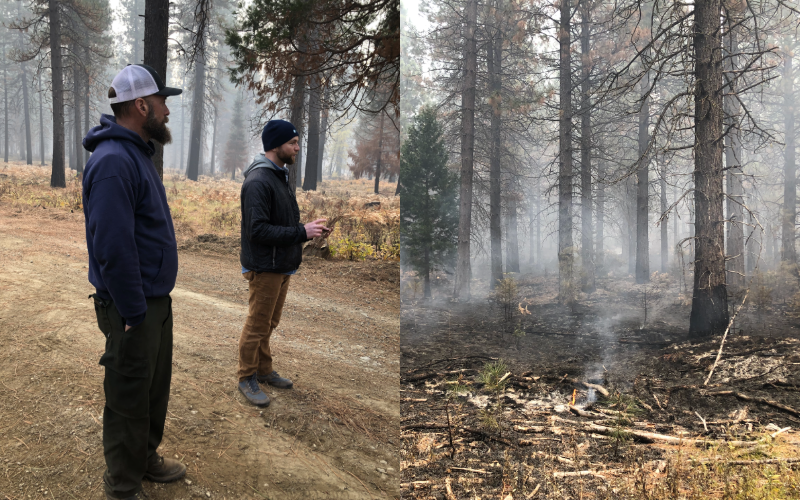
We’ve made significant and steady progress in restoring fire-resilient forests at the 1,346-acre McCloud Soda Springs Working Forest. Adjacent to the town of McCloud, California, this property has been a focal point of various forest health treatments that improve forest condition, restore wildlife habitats and reduce wildfire risks. In spring 2024, with funding from the Wildlife Conservation Board, we carried out the largest prescribed burn on private commercial forestlands in over two decades. This pioneering and historic burn illustrates our dedication to proactive, practical forest stewardship, providing an example for other land managers to follow.
Continuing this fall, we burned an additional 160 acres over two days in early November, focusing on wet meadow restoration and enhancing the protective buffer south of McCloud. Our initial fall burn plan covered 350+ acres, but unseasonably calm weather restricted smoke dispersal, while early rains left fuels damp, which cut short the 10-day burn window.
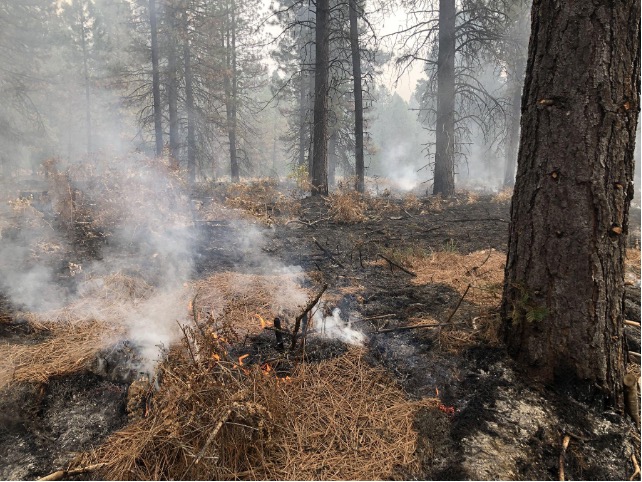
Successful “underburning,” on MSS, which targets lower vegetation like grasses and shrubs while protecting larger trees.
One aspect of the most recent burn was to see what differences may emerge from spring versus fall burning. Most habitats in California were adapted to fall burns, but spring burns are often considered safer and easier to manage. The 750 acres burned this spring have shown remarkable recovery, with abundant new grass and early shrub growth attracting deer and other wildlife.
Community support has been crucial to the success of these efforts. McCloud residents have overwhelmingly backed our work. To maintain transparency and local involvement, we recently hosted a walking tour of the burn area for homeowners enrolled in our walk-in access program. PFT’s Connie Best, Jack Singer and Dave Reynolds, a McCloud resident who is our local caretaker of the property were joined by our burn boss, Bill Jacks, and a number of local residents.
We plan to return in spring to complete the burn across the rest of the property, continuing our mission of promoting healthy, fire-adapted forests that enhance community safety.
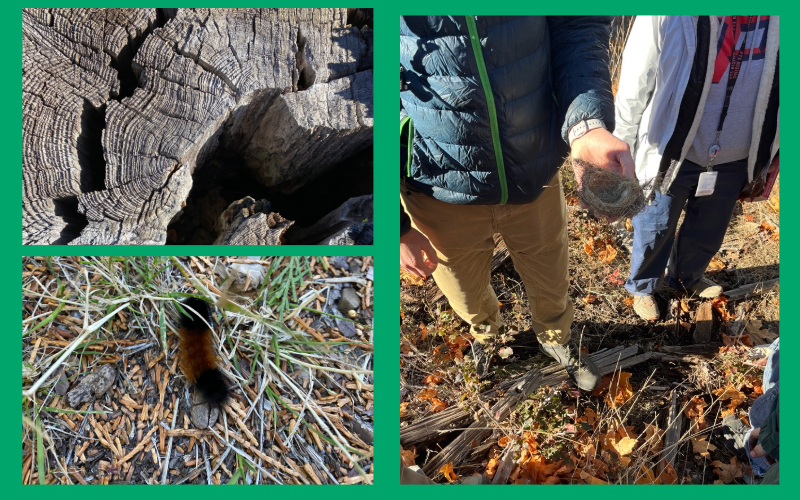
Earlier this month, we were pleased to have two high school science groups join us up on our Mount Ashland Demonstration Forest (MADF) to learn about forest resource management and restoration.
Building on the initial field classes we held this spring, we welcomed Advanced Placement (AP) Environmental Science seniors from Phoenix High School, accompanied by teachers Scotty Stalp and Alyssum Barber, and high schoolers from Armadillo Community Charter School.
The students explored our 1,120-acre forest, getting to know its diverse habitats, from conifer forest to wet and dry meadows and chapparal. A key focus is learning about ecological forest management practices relevant to the highly diverse mixed conifer forests of the Siskiyou Region and especially the management needed to restore more fire-resilient conditions to these globally unique forests that surround their homes.
The visits aim to provide students with hands-on learning about forest biodiversity, habitats, and the wildlife that call this forest home. MADF Stewardship & Outreach Coordinator Lyndia Hammer guided the group through the property, sparking curiosity about topics from fire history to animal tracks. The students observed bear and coyote scat, investigated fire scars on ancient incense cedars, and examined tree rings on cut stumps, which revealed growth patterns and past fire events.
Our educational work at MADF focusses on providing a “hands-on” introduction to the power of restoration (and just plain fun) that comes from working in the woods. Our goal is to encourage and nurture the next generations of forest stewards who are needed to implement climate-resilient management in these stressful changing times. One key aspect of that concerns managing forests with fire. PFT Forester Jack Singer demonstrated the importance of understanding fuel moisture in prescribed burning—a crucial tool for forest health. The students expressed enthusiasm for future visits, including winter snowshoeing to track animal activity and continued exploration of MADF’s riparian systems.
Mount Ashland Demonstration Forest provides an ideal living classroom, offering students immersive experiences in forest ecology, conservation, and sustainable land management practices. Through educational initiatives like this, PFT hopes to inspire the next generation of environmental stewards.
Please consider a donation to the Pacific Forest Trust. Your help—in all capacities—makes our work possible. Thanks for supporting us as we support forests!
California Climate Bond Passes, Marking a Historic Investment in Forest and Climate Resilience
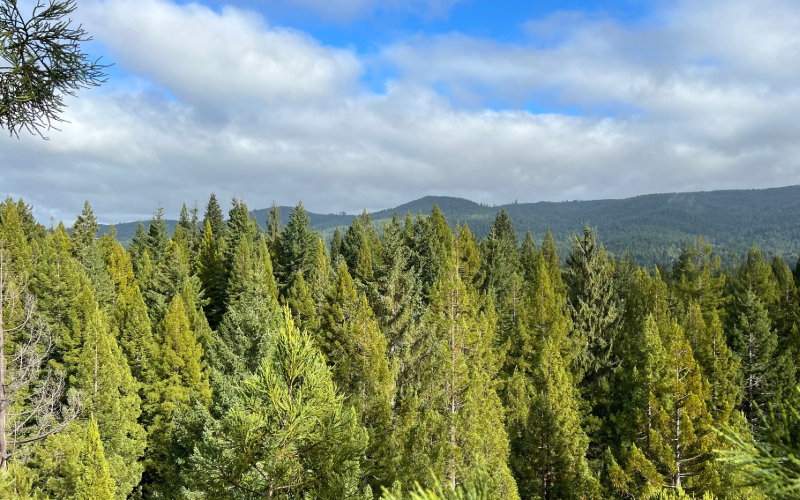
California voters have made history by passing the $10 billion Safe Drinking Water, Wildfire Prevention, Drought Preparedness, and Clean Air Bond Act of 2024 (Prop. 4), the largest climate resilience investment in the state’s history. This bond will help California take bold steps towards climate resilience, regardless of potential future inaction at the federal level.
Prop. 4 allocates significant funding to several crucial areas that PFT is involved in:
- $3.8 billion to bolster the state’s water security, inclusive of watershed restoration and conservation;
- $1.5 billion to continue expansion of wildfire management and forest resilience treatments,
- $1.2 billion for biodiversity conservation and nature-based climate solutions.
All these investments support California’s goals for conserving natural and working lands—one of our most immediate and practical tools—as set forth by the AB 1757 Expert Advisory Committee and the Governor’s targets announced on Earth Day 2024. These new investments from Prop.4 will empower the state to harness natural carbon sequestration, and promote climate adaptation and resilience, at scale.
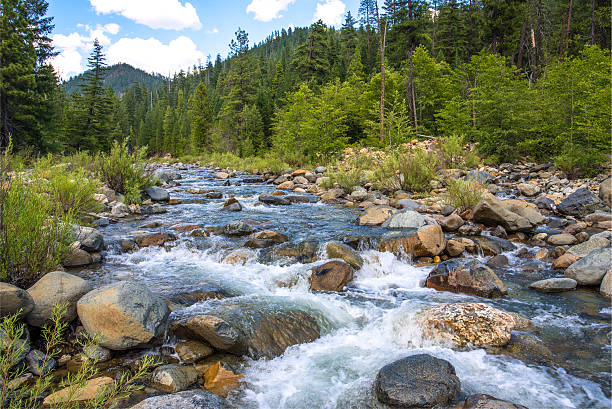
Prop 4 will restore California’s watersheds to safeguard clean water, healthy ecosystems, and climate resilience.
This bond also aligns with California’s 30×30 campaign to conserve 30% of state lands and waters by 2030, reinforcing the essential role of natural ecosystems in tackling climate change. Shaped with the help of PFT’s expertise in climate-adaptive forest and watershed management, Prop.4 investments promise to drive transformative action for forest conservation and climate regulation.
Prop 4’s passage demonstrates California’s commitment to resilience and conservation, aiming to safeguard the state’s irreplaceable biodiversity and natural landscapes for generations. This landmark investment continues California’s leadership addressing climate change through practical, nature-based solutions.
ICYMI
In case you missed it (ICYMI), here are some other exciting things PFT has been involved in lately!
- PFT President Laurie Wayburn was back East recently to share our inspiring vision for harnessing the power of forests to combat climate change, at the TEDxBoston: Planet Action We’ll share a link to her talk when it’s online, but for now, enjoy these pictures!
- Read this letter about PFT’s post-Election plan to keep working toward our mission and enacting change, then make your tax-deductible gift by midnight on December 31, 2024, and double your impact for forests and climate! Thanks to a generous anonymous donor, every year-end contribution to Pacific Forest Trust will be matched dollar-for-dollar, up to $125,000. Your support sustains vital work to restore forest health and fire resilience, protect water supplies, enhance biodiversity, and safeguard habitat for wildlife. Together, we can ensure forests thrive for generations to come.
- We recently hosted a screening of Beyond the Trees—the documentary about our innovative work on the van Eck forests of Oregon and California—at the Bruce Museum in Greenwich, CT. The Greenwich Sentinel wrote this lovely article about the showing. It was great to engage the audience on how properly conserved and managed private forests are a key tool is fighting climate change!

